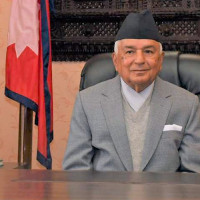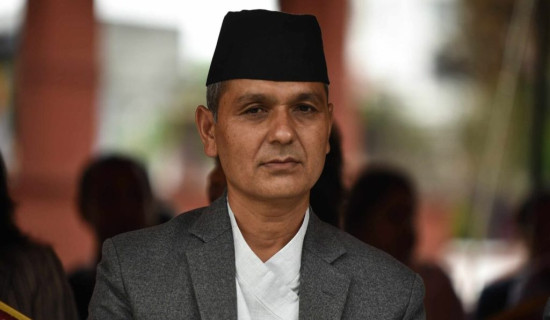- Thursday, 19 February 2026
Tracking The Missing Persons
The number of people going missing is rising day by day. In fact, such incidents have been a challenge to the state. In Nepal, over 119,000 persons have gone missing over the last ten years, from 2072-73 to 2081-82. However, over 60,000 have been found, with the fate of the rest unknown. The data shows that the number of women going missing has topped the list at over 55,000. The number of the elderly going missing has stood at over 1,300. Likewise, the number of missing owing to disasters has come out at over 1,300 (from 2068-2082).
Why people go missing is not only an anthropological issue but also a familial, social, economic or mental issue. There are several factors that contribute to people going missing. Family conflicts, domestic violence and marital problems may force people to flee home. Women are more likely than men to flee home in such conditions. People with mental health problems, such as dementia and depression, may leave home and wander somewhere. Natural disasters such as earthquakes, floods and landslides may cause displacement and disappearance of people.
Exploitative conditions
In such a case, it will be difficult to track them because most of them may have perished. Trafficking of people – especially women and children – for use in exploitative conditions is another factor responsible for making people disappear. Some people may disappear on their own when they cannot cope with familial, financial or other problems.
Conflicts are a potent force that can make people disappear. During the Maoist insurgency (1996-2006), thousands of people went missing or were made to disappear. It has been 19 years since the insurgency came to a halt. The Commission of Investigation on Enforced Disappeared Persons (CIEDP) has made public a list of 2,506 persons made to disappear either by the state or by the Maoist rebels during the decade-long insurgency. The list is based on the complaints received by the CIEDP since 2015. However, progress on the work is moving at a snail’s pace, much to the chagrin and distress of the families concerned.
Some missing people are also found. They may be found in different conditions. Some may be found in safe and sound conditions. They may be with their friends or relatives. They may be living in shelters. Some may be found in distressed or injured conditions. Many are found in injured and traumatised conditions. Some are found in exploited or trafficked conditions. In the worst case, some may be found deceased owing to accidents or violence. Or, they may have died of natural causes.
It is reported that there is a mismatch between people reported missing and found. Missing persons found are not always the same as those reported missing. On the one hand, families are continuously searching for their missing loved ones, while on the other, missing persons are unexpectedly found and reunited with their families. So there is a chasm in the data of people reported missing and found. Sometimes, missing persons found are wrongly considered those reported missing. On the other hand, when a family has found its missing member, the same may not be reported back to the police. Thus, misidentification and non-reporting have also given rise to a mismatch in the data.
To bridge the gap in the data, it is imperative for the authorities concerned to develop a robust reporting and tracking system. When a person goes missing, the incident should be reported to the police. When the person is found by the family, the same should also be reported back to the police. If it is not done, the person will still be on the list of missing persons in the records of the police. A public awareness campaign is a must to improve the reporting and tracking mechanism. There is a tendency on the part of some people, especially marginalised people, not to report to the police about their members going missing owing to a lack of knowledge about this.
Some people may not have trust in the police; they search for their missing relatives on their own or through friends or other relatives. Exchanges of information about reports of people going missing between various police units will also play a catalytic role in finding missing people. For this, there should be effective coordination and synergy. We are in the digital age. So use of technology such as centralised data systems and mobile apps may also come in handy when it comes to reporting and tracking missing persons.
Parents' responsibilities
In the context of children going missing in large numbers, parents have major responsibilities for preventing such incidents. They should take measures to protect their children and prevent them from going astray. Likewise, families should take care of their elderly members. The elderly may suffer various problems related to hearing, eyesight and mental health. They need care and protection. A familial environment conducive to their health and lifestyle may prevent them from fleeing home. The number of people going missing may be higher than the figures shown by the data. Backward or marginalised people hardly report to the police. Even other people and transient people may not report to the police.
Backward people and transient people are considered vulnerable. They may not have contacts with the authorities concerned. Their absence often goes unnoticed or unreported. So under-reporting is widely suspected. The reporting and tracking mechanism should be strengthened. There is no doubt about it. But cooperation from the general public is equally important. They should report to the police, make follow-ups, if need be, and report back to the police if their missing relatives have been found. So concerted efforts on the part of both the police and the general public are required to make the reporting and tracking mechanism effective and robust.
(Maharjan has been regularly writing on contemporary issues for this daily since 2000.)
















